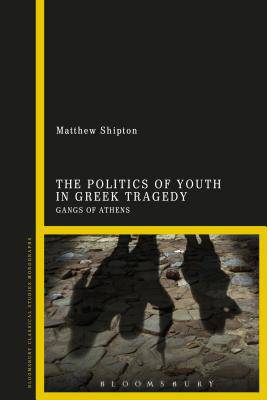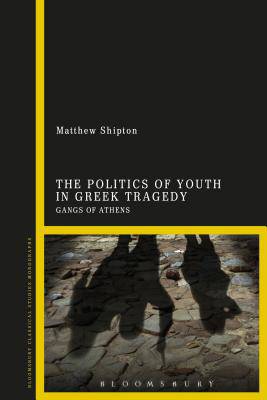
Bedankt voor het vertrouwen het afgelopen jaar! Om jou te bedanken bieden we GRATIS verzending (in België) aan op alles gedurende de hele maand januari.
- Afhalen na 1 uur in een winkel met voorraad
- In januari gratis thuislevering in België
- Ruim aanbod met 7 miljoen producten
Bedankt voor het vertrouwen het afgelopen jaar! Om jou te bedanken bieden we GRATIS verzending (in België) aan op alles gedurende de hele maand januari.
- Afhalen na 1 uur in een winkel met voorraad
- In januari gratis thuislevering in België
- Ruim aanbod met 7 miljoen producten
Zoeken
€ 76,45
+ 152 punten
Uitvoering
Omschrijving
This bold new set of interpretations of tragedy offers innovative analyses of the dynamic between politics and youth in the ancient world. By exploring how tragedy responded to the fluctuating attitudes to young people at a highly turbulent time in the history of Athens, Shipton sheds new light on ancient attitudes to youth. Focusing on famous plays, such as Sophocles' Antigone and Euripides' Bacchae, alongside lesser known tragedies such as Euripides' Heraclidae and Orestes, Shipton uncovers compelling evidence to show that the complex and often paradoxical views we hold about youth today can also be found in the ancient society of classical Athens.
Shipton argues that the prominence of young people in tragedy throughout the fifth century reflects the persistent uncertainty as to what their role in society should be. As the success of Athens rose and then fell, young characters were repeatedly used by tragic playwrights as a way to explore political tensions and social upheaval in the city. Throughout his text, Shipton reflects on how negative conceptualisations of youth, often expressed via the socially constructed 'gang' are formed as a way in which paradoxical views on youth can be contained.
Shipton argues that the prominence of young people in tragedy throughout the fifth century reflects the persistent uncertainty as to what their role in society should be. As the success of Athens rose and then fell, young characters were repeatedly used by tragic playwrights as a way to explore political tensions and social upheaval in the city. Throughout his text, Shipton reflects on how negative conceptualisations of youth, often expressed via the socially constructed 'gang' are formed as a way in which paradoxical views on youth can be contained.
Specificaties
Betrokkenen
- Auteur(s):
- Uitgeverij:
Inhoud
- Aantal bladzijden:
- 208
- Taal:
- Engels
Eigenschappen
- Productcode (EAN):
- 9781350124967
- Verschijningsdatum:
- 22/08/2019
- Uitvoering:
- Paperback
- Formaat:
- Trade paperback (VS)
- Afmetingen:
- 156 mm x 234 mm
- Gewicht:
- 290 g

Alleen bij Standaard Boekhandel
+ 152 punten op je klantenkaart van Standaard Boekhandel
Beoordelingen
We publiceren alleen reviews die voldoen aan de voorwaarden voor reviews. Bekijk onze voorwaarden voor reviews.









